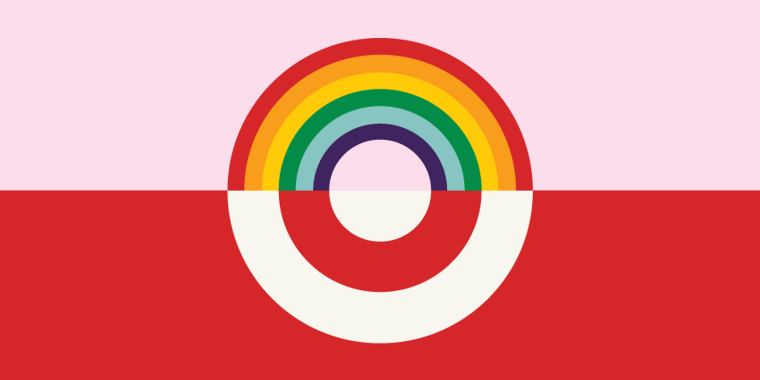Conservative groups are taking aim at Target, but retail analysts don’t think they’ll leave a mark.
The company’s announcement on its website a week ago saying that transgender employees and customers could use the restroom (or fitting room) that corresponds to their gender identity, in response to North Carolina’s so-called “bathroom law,” kicked off a firestorm of opposition from right-wing and evangelical groups.
“Target supports the federal Equality Act, which provides protections to LGBT individuals, and opposes action that enables discrimination.” the company said on its site, referring obliquely to the debate over North Carolina’s law, which requires people to use public bathrooms that correspond to their birth certificate rather than their gender.
“Given the specific questions these legislative proposals raised about how we manage our fitting rooms and restrooms, we felt it was important to state our position," Target said.
Supporters of the North Carolina law — as well as others like it being advanced in other states — responded in kind. A petition to boycott Target circulated online by the American Family Association, which supports the North Carolina law, had nearly a million signatures a week after Target’s announcement.
Read More: Thousands Pledge Boycott of Target Over Bathroom Policy
Perhaps the strongest evidence to date that this online vitriol could translate into business trouble for the big-box chain is new poll data from YouGov BrandIndex.
Using a metric it calls its “Buzz Index,” which measures both positive and negative consumer perception of a brand, YouGov found that Target’s reputation fell by nine points, with a slightly more negative perception among women.
YouGov also found that the percentage of consumers who said they would consider shopping at Target the next time they visited a store in its category fell by four percentage points, from 42 percent to 38 percent.
“It’s meaningful, meaning it’s statistically significant,” said YouGov BrandIndex CEO Ted Marzilli.
Marzilli said Target became a lightning rod because its stance taps into the larger topic of LGBT issues in America.
“This is more than just about Target. This is about a political debate that’s been brewing over the last couple of months,” he said. “The reality is I think Americans are uncertain about this — or there are many that are certain, but on both sides of the issue.”
Bob Witeck, president of Witeck Communications, Inc., a strategic public relations and marketing communications firm that focuses on the LGBT market, suggested that the strength of “bathroom law” support stemmed from advocates successfully framing it as an issue of safety.
“They’ve got the upper hand in terms of a message that works… and they’re using it very effectively,” he said. “More corporations are going to push back."
Some already have, and as more companies say customers and workers can use the bathroom that corresponds with their gender identity, responses could shift the spotlight away from Target, Marzilli said.
“I think you’ll see a reversion back towards normal.”
Read More: Target Takes an 'Inclusive' Stand on Transgender Bathroom Debate
Most analysts believe this will blow over without damaging the retailer. “I don’t foresee this having a material impact on sales or earnings,” said Joe Feldman, senior managing director at Telsey Advisory Group.
“If you look historically at corporations attacked or boycotted, there’s no empirical or market evidence that they ever suffered any specific losses,” Witeck said. “None of these boycotts have legs, they don’t last for a long time.”
This isn’t the first time Target has been on the receiving end of right-wing ire. Last year, it faced boycott threats from people upset by its removal of signage separating boys’ and girls’ toys, and in 2012, it sparked a backlash for selling T-shirts to support the Family Equality Council, a group opposing the Defense of Marriage Act (a major piece of which was overturned the following year).
Some suggested Target could even benefit from its stance by increasing its reputation with millennial shoppers.
“To the extent that Target is trying to resonate with millennials … presumably, this helps promote that,” Feldman said.
“When you take a look at their demographic and where their stores typically are and who their shopper base is, I think they've made the decision that it’s wiser to be more vocal about it,” said Kantar Retail principal analyst Amy Koo.
“It’s a relatively safe position for them to have,” she said.
